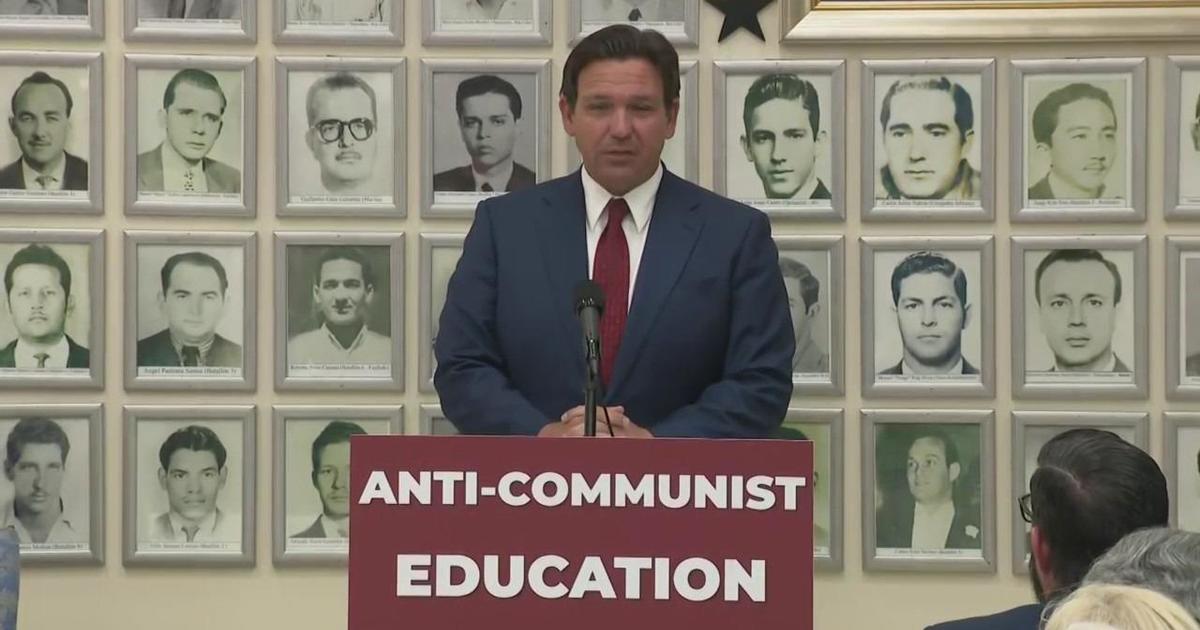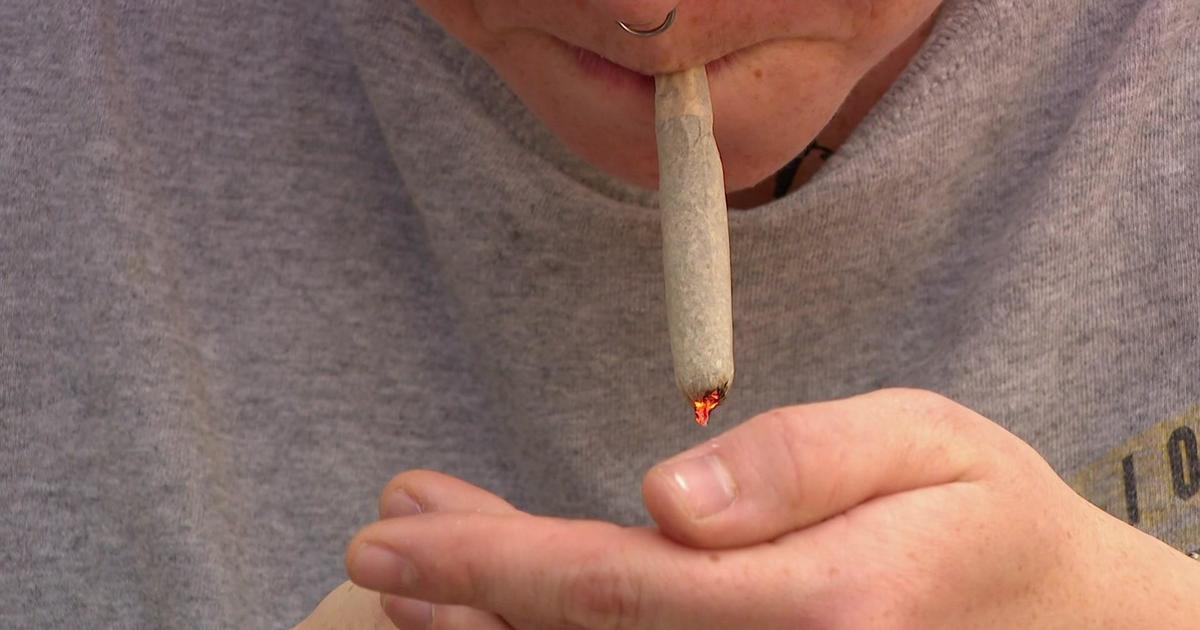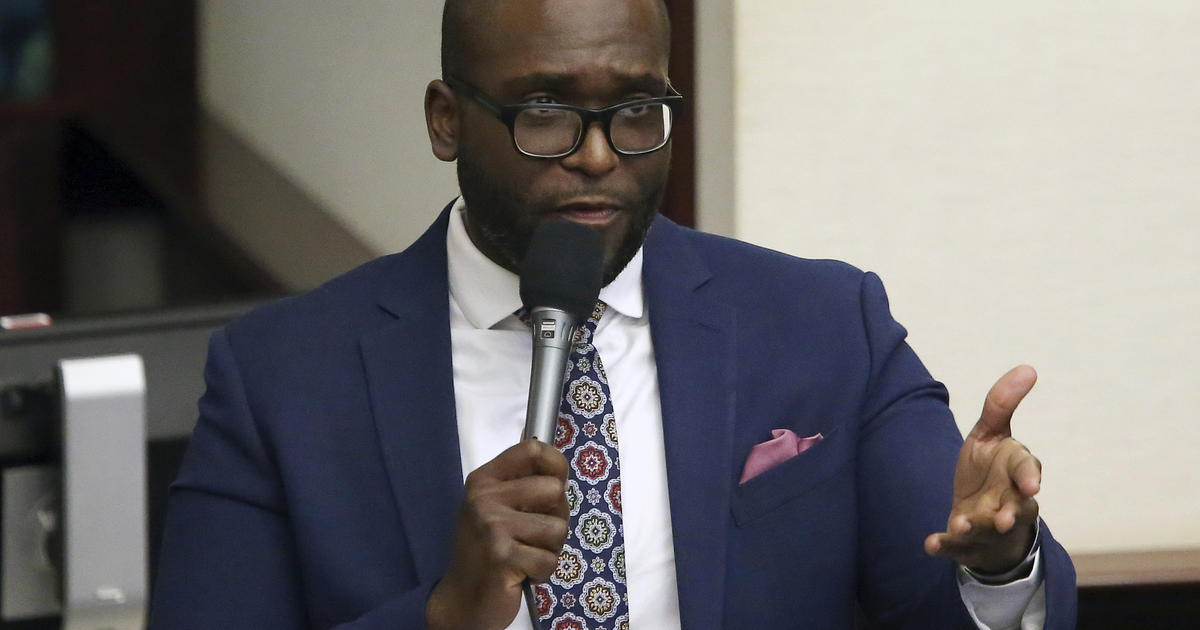State Data Reveals Lax Enforcement Of Florida's No Texting While Driving Law
MIAMI (CBSMiami) - In 2019, Governor Ron DeSantis signed a law that made texting while driving a primary offense in the state.
"It'll make our roads safer," DeSantis said.
The mandate stipulated a fine of $30 for the first offense and a climb to more than $100 for repeat offenses.
The problem is - the law is rarely enforced, according to official state figures.
Florida also has failed its requirements under the law to track comprehensively how many drivers are ticketed statewide – and whether police are targeting minorities. Those in charge of writing tickets also complained that the law has too many loopholes.
Florida's census of texting violations, published earlier this year, is missing tickets entirely from more than 20 of the state's 67 sheriff's departments and at least 56 of 155 municipal police departments. The state sent the official report, anyway, to the governor, Senate president and House speaker. The report also contained at least one major error – discovered after the fact by a news reporter – that overcounted texting tickets by hundreds.
Broward County did not submit any numbers to the Department of Highway Safety and Motor Vehicles, as required annually under the law until a reporter asked why its figures were missing. It turned out that deputies in Broward, where nearly 2 million people live, ticketed only 18 drivers for texting.
In areas where law enforcement agencies submitted data, the numbers also showed that police aren't aggressively enforcing the anti-texting law.
Last year – the first year when drivers could be ticketed – officers, deputies, troopers, and others wrote only 3,410 such citations among Florida's more than 15 million licensed drivers, according to official state figures. The Florida Highway Patrol accounted for nearly one-third of the tickets.
In a typical year, authorities statewide issued more tickets for carpool lane violations or failing to use turn signals. In 2019, the latest figures available, Florida recorded more than 56,000 crashes and nearly 300 deaths blamed on distracted driving, which includes texting.
In Miami-Dade County, with an estimated 2 million drivers, police wrote 295 texting tickets, or about six each week. Palm Beach County deputies gave out 38. In the Keys, Monroe County deputies wrote 68 texting tickets.
In Alachua County, home to the University of Florida with more than 50,000 students who live on their phones, campus police issued zero citations for texting behind the wheel. Likewise, police at Florida State gave no such tickets.
The sheriff's office in Alachua County also failed to provide its figures to the state. A spokesman later said it gave out six tickets.
In one case, deputy Aaron Brami ticketed Trevyne Willis, 31, of Newberry in June after watching her texting as she slowed for a traffic light.
"When I'm looking at you, and you're looking down, texting," Brami said, according to body camera footage. "is that safe?"
"I understand, officer, I'm so sorry," Willis said. "No, sir."
Willis was assessed a $109 fine but never paid it, according to court records. Her license was suspended, and the case was turned over to collections in November.
Six Florida counties – Baker, DeSoto, Lafayette, Levy, Nassau, Suwannee, and Union – reported zero texting tickets last year, the state said. More than 100 law enforcement agencies ticketed fewer than 10 drivers, and at least 30 municipal police departments wrote no tickets for texting while driving.
The state report contained at least one serious mistake: It included 253 tickets from St. Johns County along Florida's eastern coast, which includes St. Augustine. That was nearly as many tickets as in Miami-Dade County, with 10 times more residents. Actually, the county only wrote 17 texting tickets, said Scott Beaver, its director of patrol.
That corrected total brought the statewide count to 3,174.
That mixup occurred when the sheriff's office mistakenly submitted totals for expired registrations, not texting violations. Records supervisor Racheal Moore said the county was correcting its report and notified the Florida Department of Highway Safety and Motor Vehicles.
A key provision in the new law requires authorities to record the race and ethnicity of each driver ticketed for the report sent annually to the governor and legislative leaders.
The lack of accounting from so many jurisdictions makes it impossible to determine reliably whether minorities were targeted under the law.
A former state prosecutor and deputy director of the Florida American Civil Liberties Union, Melba Pearson, fought for the new law to include race and ethnicity reporting requirements. Now, she said, she worried that some police agencies were deliberately withholding figures that might show minorities being targeted.
"Our government needs to be accountable to the people that they serve, and accurate data is the way to do that," said Pearson, now director of policy and programs at Florida International University's Center for the Administration of Justice.
Under Florida's new law, drivers can make phone calls, check weather or traffic alerts, and use phones for navigation – except in a school or construction zone, which are "hands-free" spaces, where any phone activity behind the wheel is prohibited.
Drivers can also text while their car is stationary, like at a stoplight. Officers can ticket people only when their car is in motion and they have a reasonable belief the driver is texting. Drivers are not required to allow officers to look on their phones without a search warrant.
The 2019 law was pioneered by Democratic Rep. Emily Slosberg of Delray Beach and Rep. Jackie Toledo of Tampa. When the governor signed it, Florida joined 47 other states and the District of Columbia in enforcing some sort of texting behind the wheel ban.
Slosberg is trying to expand the law to ban all cell phone use while driving, not just texting. But the bill hasn't been subject to a hearing or vote. A similar effort failed last year.
She said the state's official report on texting enforcement shows the current law is unenforceable.
"This is something that is necessary," Slosberg said. Under her proposal, Florida would join at least 15 other states banning all phone use while driving.
For Slosberg, who had proposed anti-distracted driving legislation since 2017, the fight is personal. She was in a deadly Palm Beach car accident over 20 years ago that killed her 14-year-old twin sister, Dori, and four other teenagers. The crash, which Slosberg said still haunts her, is a force behind her efforts.
(© Copyright 2021 CBS Broadcasting Inc. All Rights Reserved. The Associated Press contributed to this report.)



